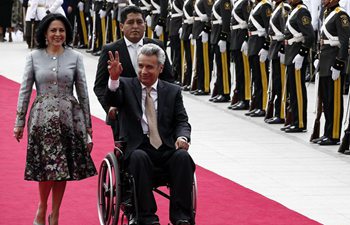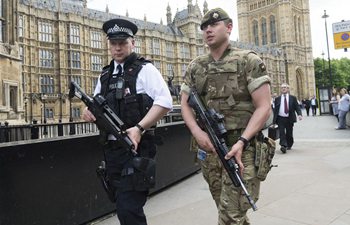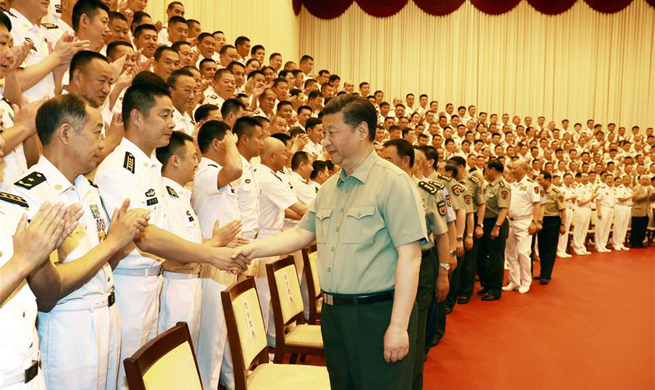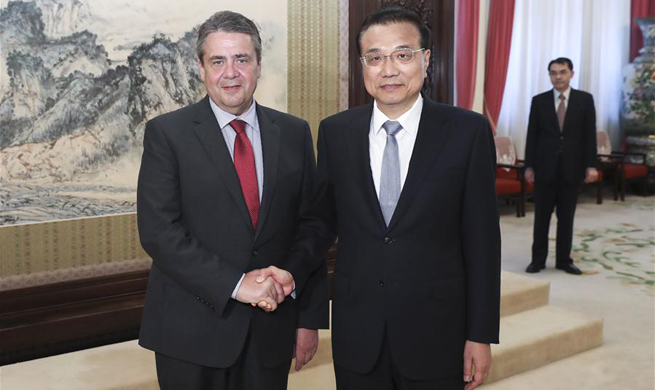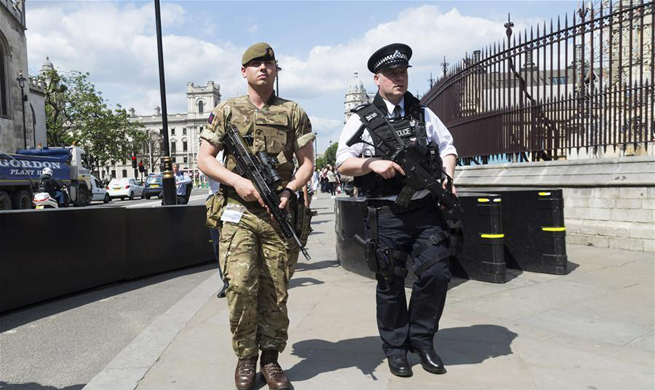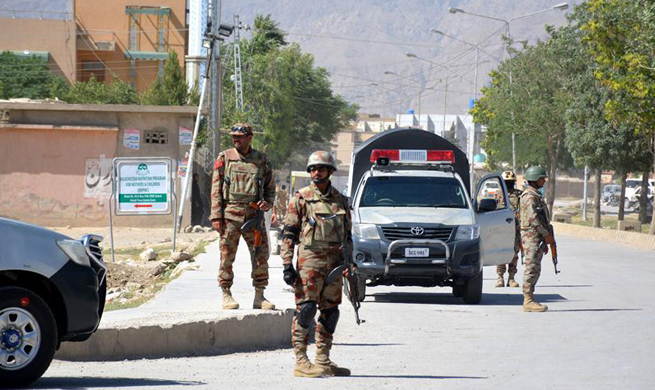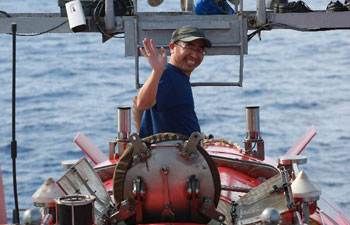by Xinhua writer Zheng Jianghua
BRUSSELS, May 25 (Xinhua) -- U.S. President Donald Trump is on his first overseas trip after taking office in January. What message will he send to NATO allies at a half-day summit to be held on Thursday has raised much speculation. But whatever the message is, it is unlikely to conciliate his NATO peers.
Trump once cast doubt on the usefulness of the North Atlantic Treaty Organization during his election campaign, dismissing the decades-old alliance as "obsolete."
Faulting allies for taking advantage of American largesse, Trump even threatened to ditch NATO unless other members pay a fair share.
NATO members agreed in 2014 to increase their defense spending to 2 percent of gross domestic product, but most of them, in Trump's words,failed to live up to their commitments.
Trump's rancorous remarks prompted backlashes in Europe. Donald Tusk, president of the European Council, in late January branded Trump's "worrying declarations" as an external threat which makes "our future highly unpredictable."
However, in recent months, Trump backed off from the "obsolete" remarks and reaffirmed U.S. commitment to NATO. But he did not budge on the burden-sharing issue.
It's fair to say that the U-turn in Trump's view on NATO's role has somehow created a jammy atmosphere for the upcoming summit, which, apparently under the U.S. pressure, puts "fairer burden-sharing" high on the agenda.
But it is not easy to make a breakthrough on the issue. For most European countries, it's unrealistic in the short term to significantly increase the defense budget. Germany, which is chided by Trump for pulling the strings of the European Union, has given the idea the cold shoulder.
The Trump administration is still prodding Europe into increasing military spending by threatening to axe U.S. commitments, although in a dulcet tone. Europeans retorted that their contribution is more than the fair share if their development aid is counted in.
Adding fuel to the fire, the Trump administration's Russia policy has raised concerns among European countries which see Europe's eastern border at stake since the Ukraine conflict flared up in 2014.
Europeans are scratching their head about what kind of a partner the United States will be under the leadership of Trump. Europe longs for a U.S. leader who respects transatlantic values, while the billionaire U.S. president, adept at making deals, sets a premium on practical benefits. The results may fall short of either one's expectation.
As an old couple with mid-term crisis, the United States and its NATO allies both need a reality check.




